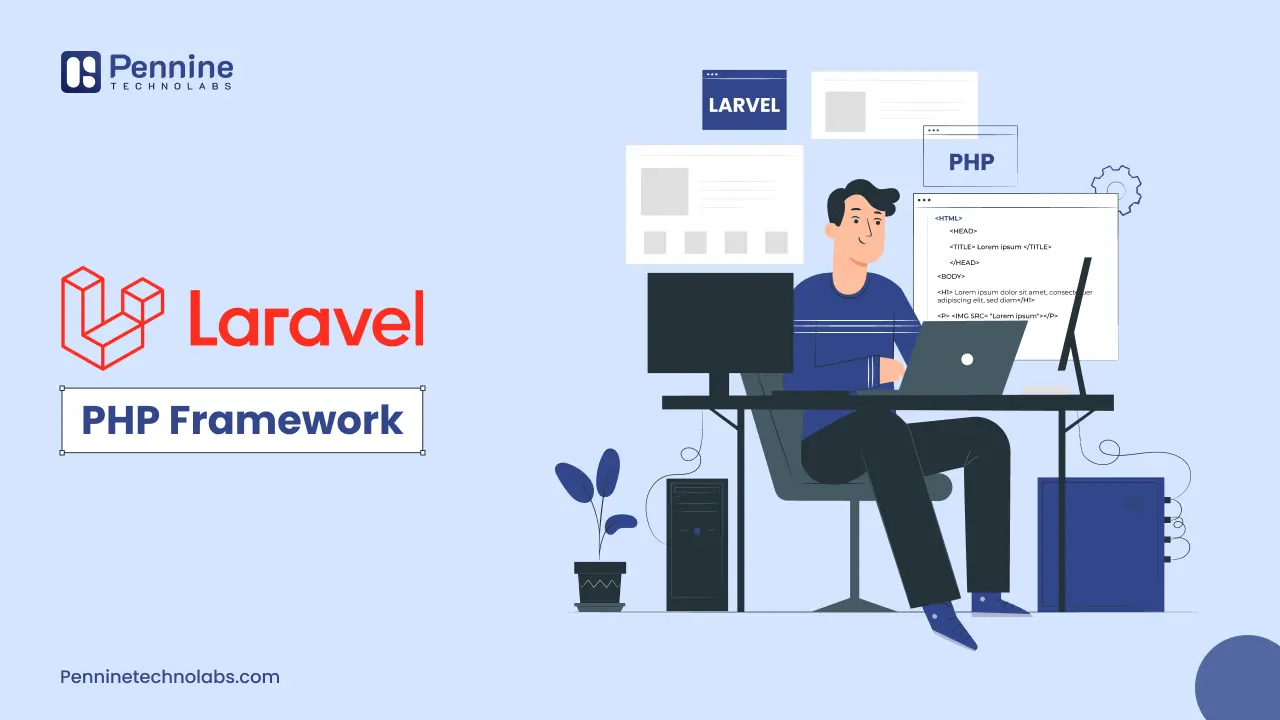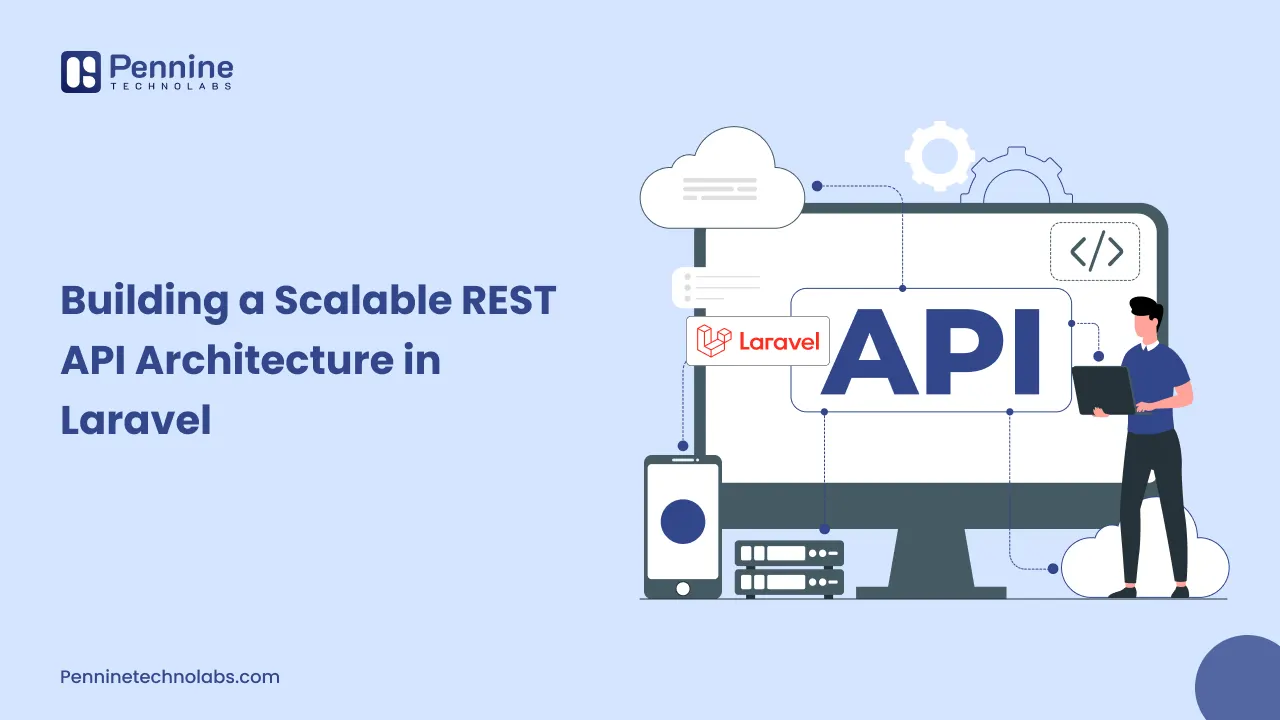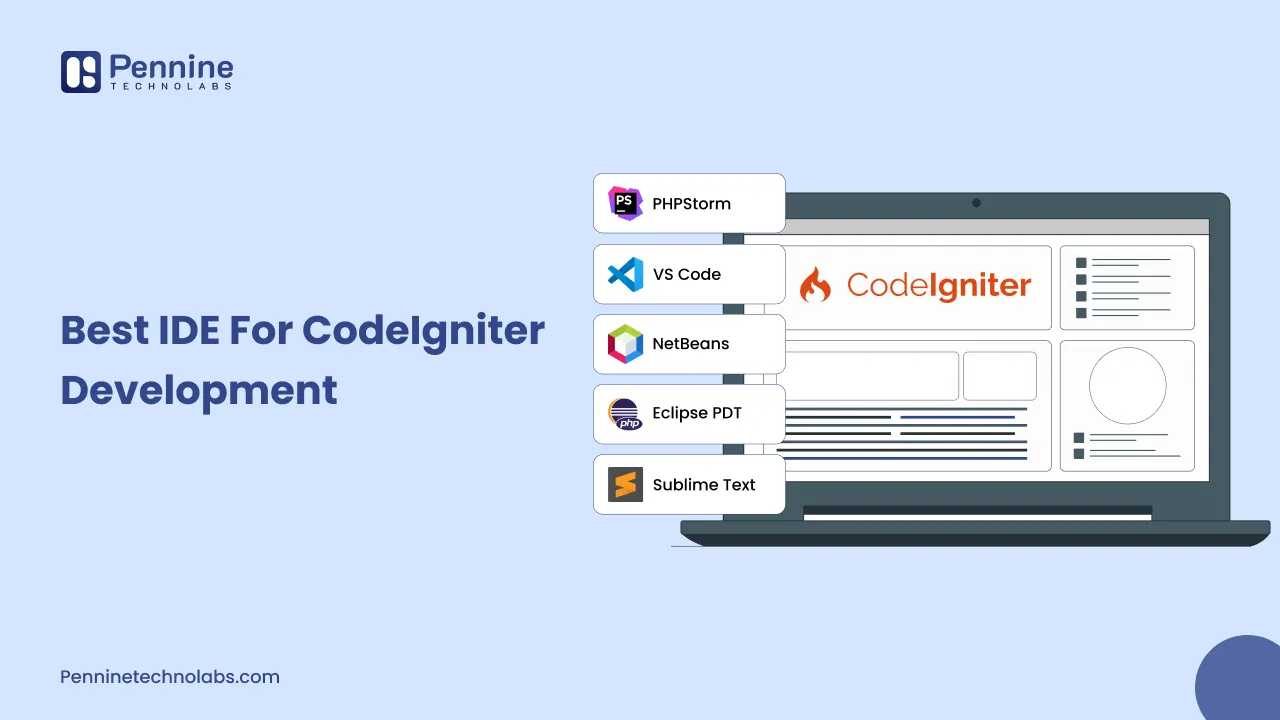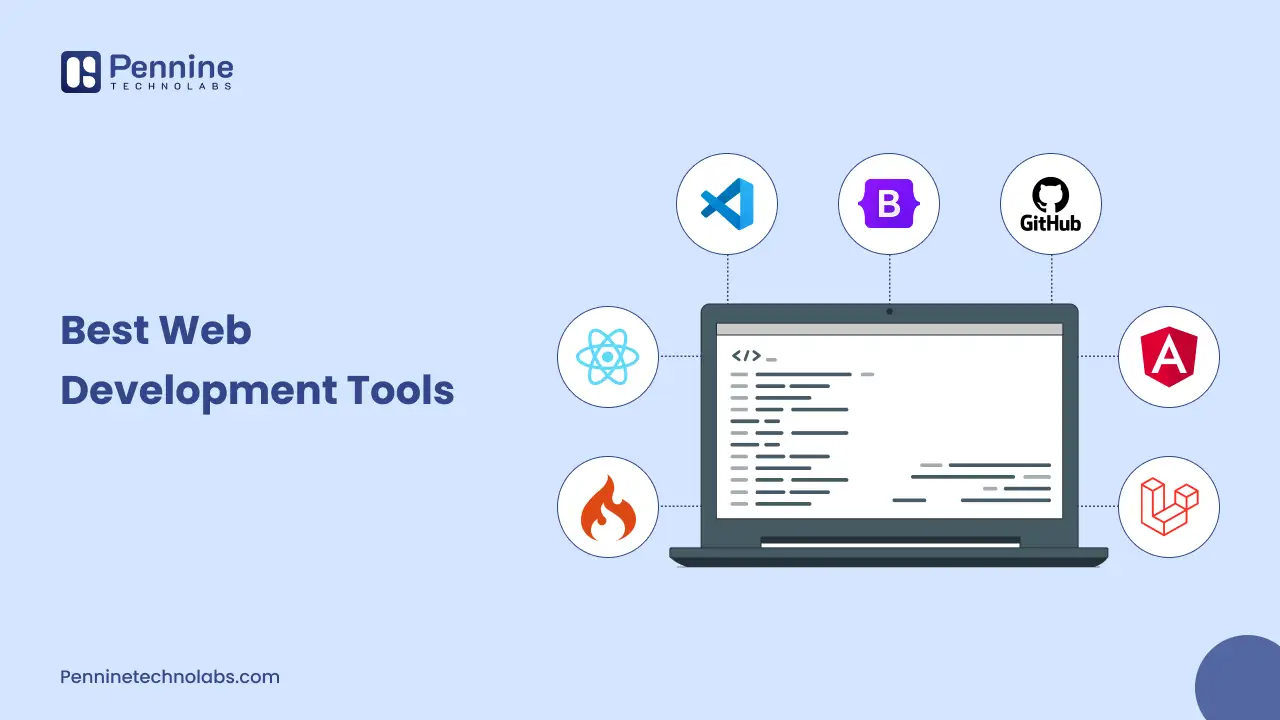Quick Summary: Laravel continues to evolve to meet the demands of modern web development. Its blend of simplicity and power makes it a popular choice among startups and corporations. Laravel provides on all fronts, including simple syntax, comprehensive security features, and productivity-boosting tools. If you’re looking for a PHP framework that promotes speedy development and long-term scalability, Laravel is hard to top.
Laravel is one of the most popular PHP frameworks used by developers around the world to create strong and scalable web applications. Known for its elegant syntax and developer-friendly approach, Laravel has become a favorite option for freelancers working with companies and PHP-based projects. Whether you are building a small business website or a full-scale enterprise app, it brings a variety of features that simplify the web app development process without compromising performance or safety.
What is Laravel?
Laravel is an open-source web application framework based on PHP developed by Taylor Otwell. Laravel PHP Framework model follows the View Controller (MVC) architecture, which separates logic, presentation, and data layers. This structure makes it easier to manage large codebases and allows teams to cooperate more effectively.
Since its release in 2011, its popularity has increased rapidly due to a focus on simplicity, readability, and developer productivity. With the underlying equipment for routing, caching, authentication, and session handling, Laravel prevents developers from reinventing the wheel with every project.
In 2026, Laravel dominates as one of the most widely used PHP frameworks globally. According to the latest Stack Overflow developer survey, Laravel ranks among the top three most commonly used PHP frameworks, ahead of Symphony, CakePHP, and CodeIgniter in specific enterprise categories, and maintains the highest developer satisfaction rate in the PHP ecosystem.
Laravel Key Statistics:
GitHub Stars – Laravel has a strong community on GitHub with over 81,000 stars and active contributions from developers. Source.
Downloads – Laravel receives over 2 million downloads per month. Source.
Google Trends – Laravel ranks among the top PHP frameworks with over 12% year-over-year growth in developer adoption. Source.
The largest active communities with regular updates and strong ecosystems make it a favorite option to hire Laravel developers working on modern web applications.
Key Features of Laravel PHP Framework
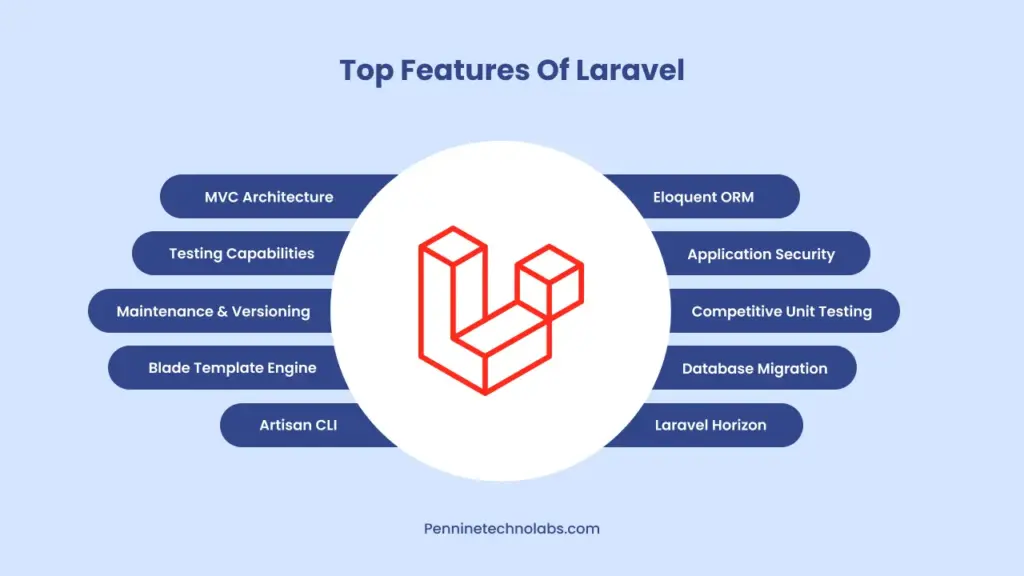
MVC Architecture
Laravel development uses the Model View Controller (MVC) pattern to organize code in a clean and structured way. The View manages the display; the Model manages the data and business logic; the Controller answers questions and closes the distance between Model and View. This separation of concerns improves code organization and makes debugging and maintenance easier.
Eloquent ORM
Laravel stands out mainly for its Eloquent ORM (Object Relational Mapping). It offers a basic and expressive grammar for database interaction. Using clear and simple PHP syntax, Laravel PHP developers may obtain, insert, update, and delete records using Eloquent models rather than creating complex SQL searches. It fits even the most complicated data structures since Eloquent allows relationships including one-to-many, many-to-many, and polymorphic linkages.
Application Security
Laravel prioritizes security measures. From the start, the framework provides password hashing, route protection, cross-site request forgery (CSRF) protection, SQL injection prevention, and encrypted data handling straight out of the box. Laravel provides built-in authentication methods to limit access to particular portions of your site and hashes passwords using Bcrypt or Argon2. These tools enable creators of programs to make them naturally secure.
Competitive Unit Testing
Laravel was developed with testing in mind. It comes with a PHP Unit and offers simple application testing assistance functions. Laravel’s included testing tools let developers build HTTP tests, feature tests, and unit tests. Automating tests helps the team to spot problems early, preserve code quality, and make sure that new features don’t affect existing functionality.
Database Migration System
Laravel boasts a strong migration process for managing database changes. By leveraging PHP code, migrations enable developers to set up and alter tables, therefore preventing the need for human database changes. This enhances development-related collaboration and helps teams maintain databases in sync across systems. Laravel also supports seeding, which lets the database fill with dummy data for testing needs.
Laravel Horizon
Laravel Horizon is a dashboard solution that allows you to manage and monitor queues. You can queue lengthy tasks like emailing or file processing for background use on your application. Horizon offers a comprehensive understanding of queue performance, job monitoring, failed job tracking, and real-time data. Applications that mostly depend on heavy tasks and background processing will find great benefit from this as well.
Blade Template Engine
Laravel includes Blade, a lightweight yet robust templating engine designed to create dynamic front-end interfaces. Blade gives control structures like loops and conditionals, and lets you apply basic PHP code in templates. It also enables template inheritance, therefore enabling simple layout management and front-end code organization.
Artisan CLI
Artisan is Laravel’s command-line interface for doing repeated operations. Artisan lets developers construct controllers, models, migrations, and more with one command. It also allows you to schedule tasks, run unit tests, and clear the cache. When developing boilerplate code, the artisan accelerates work and lowers the possibility of human mistakes.
Testing Capabilities
Laravel makes a fundamental component of the development cycle a top priority and takes testing seriously. Laravel Dusk imitates user interactions with the application, supporting browser-based testing outside of unit and feature testing. Built-in assertions and browser automation let developers test complete user processes from beginning to end, therefore guaranteeing that the application performs as intended under many conditions.
Easy Maintenance and Versioning
Laravel provides long-term support (LTS) versions that contain security updates and bug fixes. For long-term stability-requiring business applications, this is ideal. Laravel’s clean code structure, ability to work with version control, and well-documented change paths make it easier to keep projects up to date over time.
Why use Laravel over other PHP frameworks?
While many PHP frameworks are available, such as Symphony, CodeIgniter, and Yii, the Laravel stands out for some significant reasons:
Developer Productivity – The Laravel syntax is clean and expressive, sharp, and error-prone. Learning curve is also manageable for beginners while still offering depth to advanced developers.
Rich Ecosystem – Laravel forms for server management provide a complete suite of equipment, including a larger forge, a larger environment for zero downtime, and Laravel Nova for the Administration Panel. The ecosystem reduces the requirement for third-party equipment.
Community and Documentation – PHP Laravel is one of the most active developer communities in the world. Tutorials, forums, and packages are available. Its documentation is fully updated, regularly updated, and easy to understand.
Modern Development Practices – Laravel encourages the use of modern software development principles such as dependency injection, solid design principles, and the use of RESTful routing. This helps developers write better and more maintainable code.
Scalability – Whether you are building a simple website or an extensive-scale application, it scales easily. With support for cashing, queues, events broadcasting, and microservices, it can handle the growing load with the proper infrastructure.
At Pennine Technolabs, we specialize in building high-performance web applications using the Laravel PHP framework. We help businesses of all sizes launch scalable, secure, and future-ready digital platforms. From custom web development to API integration, backend optimization, and long-term maintenance, our Laravel developers deliver solutions for your goals. Our Laravel expertise ensures your project is built with clean architecture, efficient code, and proven development practices. Let’s bring your vision to life with the power of Laravel.
FAQs about Laravel PHP framework
What makes a Laravel framework better than other PHP frameworks?
Laravel provides a clean syntax, rooting, security, and underlying equipment for testing, as well as a strong ecosystem and community support, which makes development sharp and more efficient.
Is Laravel suitable for mass applications?
Yes, the largest is highly scalable and supports devices such as queues, caching, and service containers, making it ideal for enterprise-level and high-travel applications.
Can Laravel be used for eCommerce websites?
Absolutely. Laravel is well suited to the manufacture of custom ecommerce platforms thanks to its flexibility, powerful over and strong security facilities.
Is Laravel suitable for beginners?
Yes, the largest is early-oriented with excellent documentation, tutorials, and an auxiliary community, making it a great starting point for PHP developers.
How does Laravel handle security?
Laravel includes features such as CSRF security, hashed passwords, and SQL injection preparedness, making applications safe by default.
What is MVC in Laravel?
MVC in Laravel stands for Model-View-Controller, a design pattern that separates application logic. The Model handles data, the View manages the UI, and the Controller connects both to process user requests.
